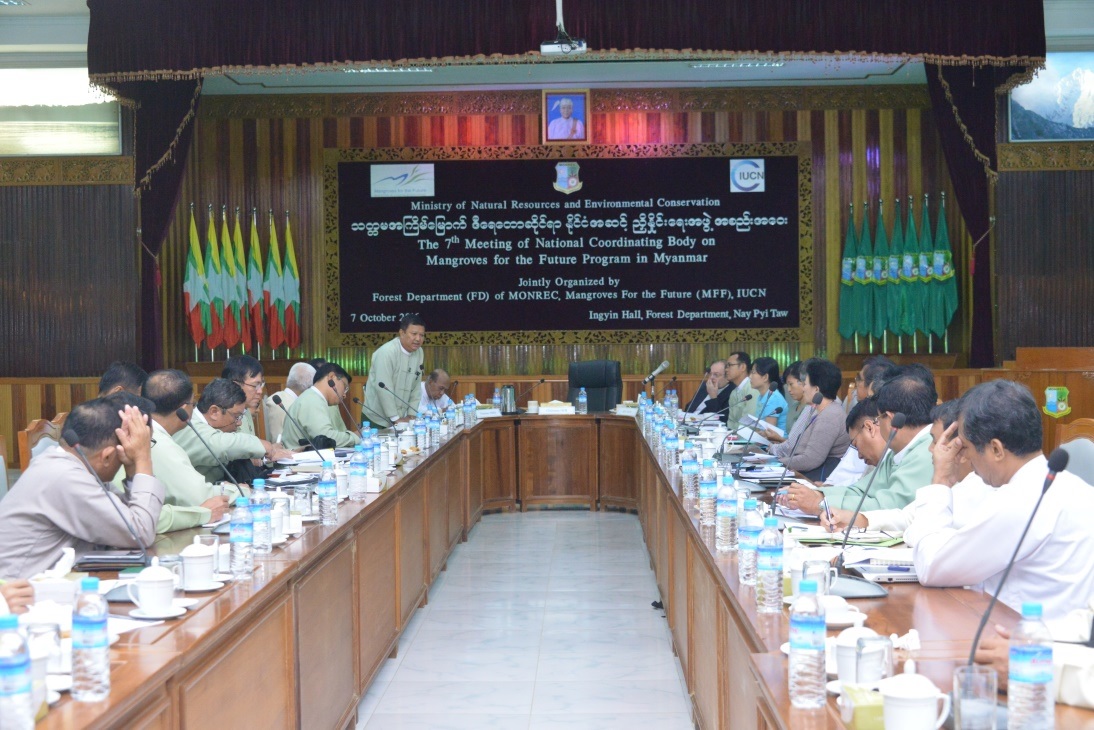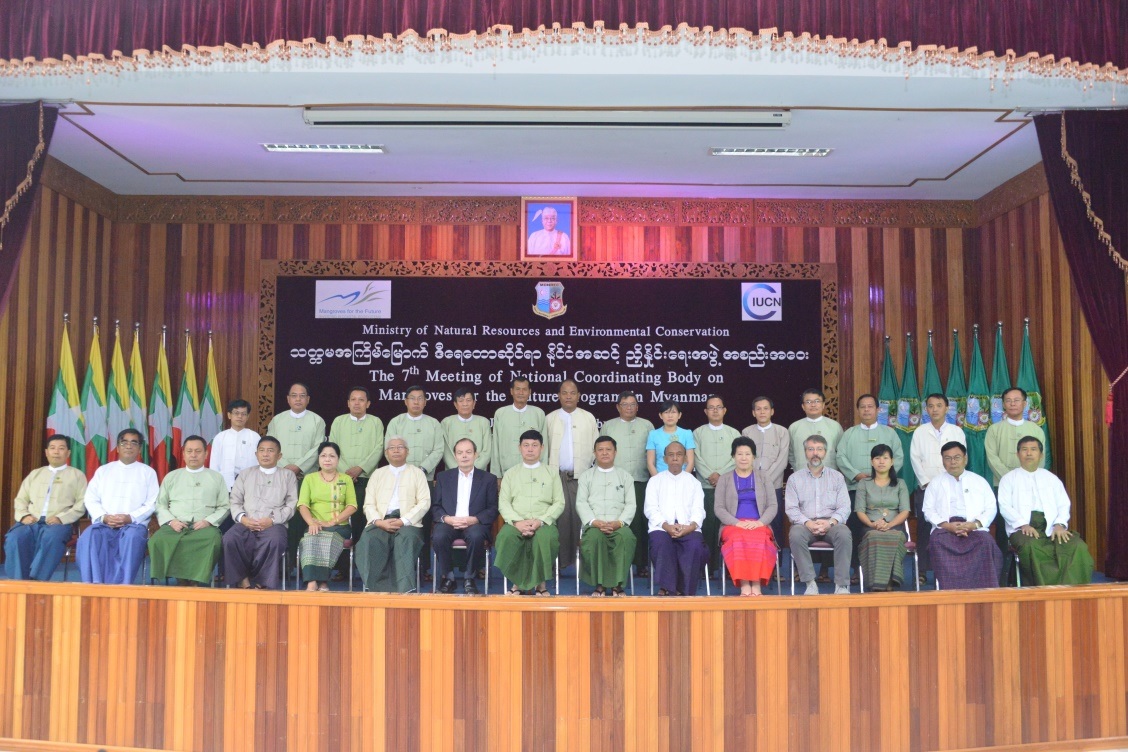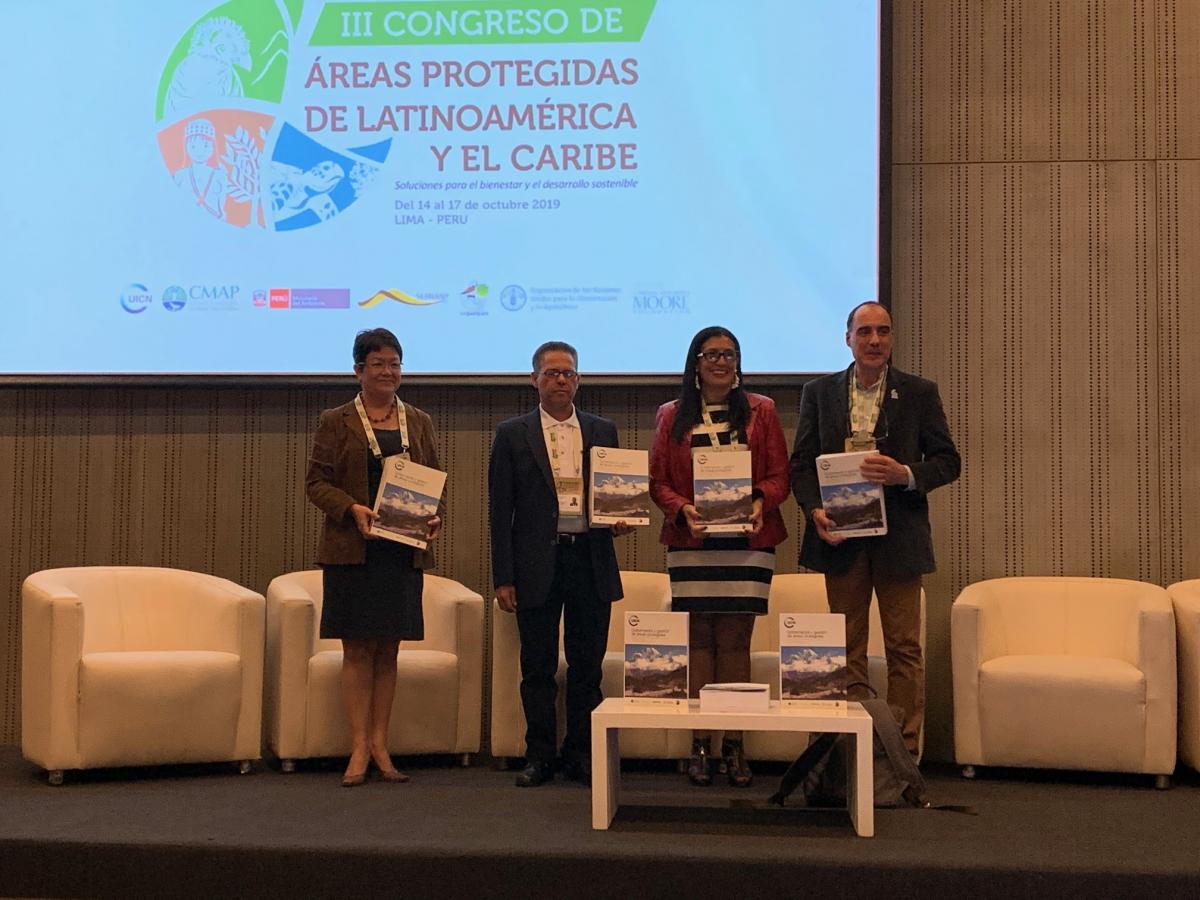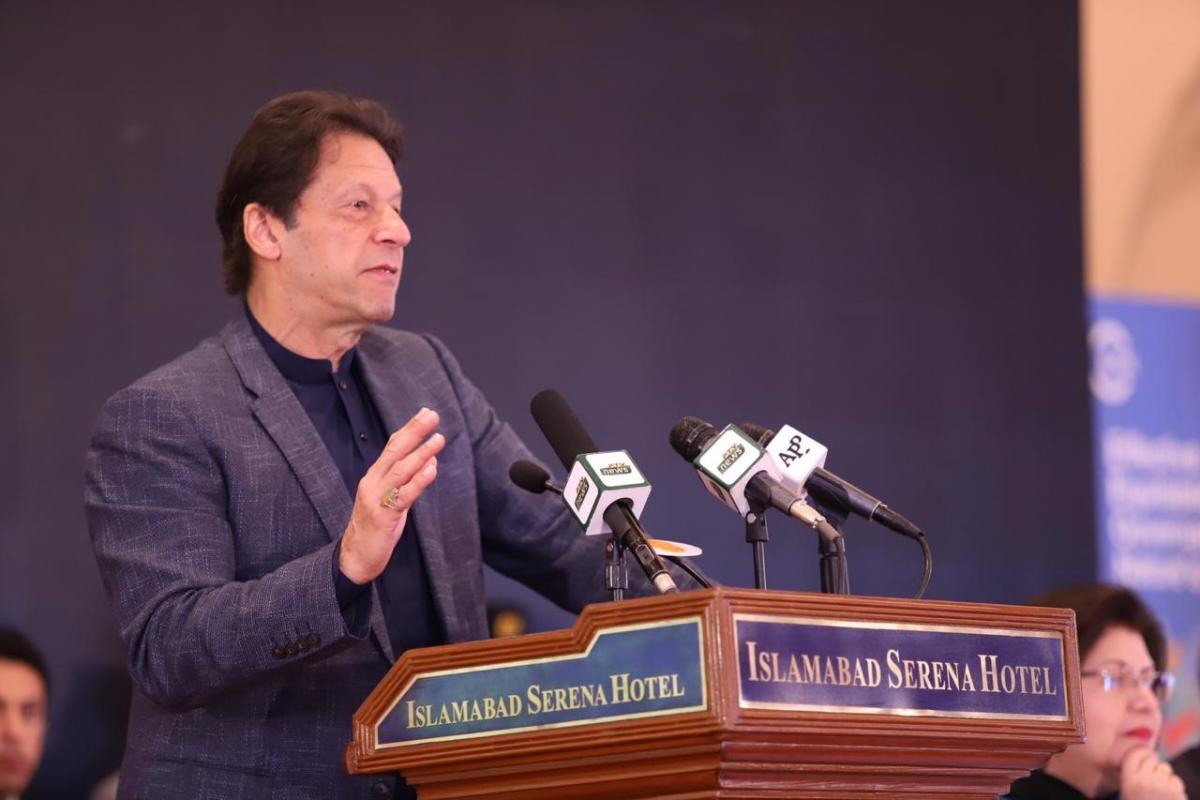Mangroves for the Future Myanmar holds the 7th National Coordinating Body meeting
The 7th Meeting of National Coordinating Body on Mangroves for the Future (MFF) in Myanmar was held on 7th Oct 2016 at the Forest Department in Nay Pyi Taw with 25 participants from the National Coordinating Body (NCB) members.
The objective of conducting the 7th NCB meeting was to discuss questionnaires in order to support development of an MFF Sustainability Strategy, Mid-term report, a workplan for 2017, Cycle-6 geographical area, and Green Climate Fund (GCF) proposal.
The National Coordinating Body (NCB) has decided to continue the Small Grant Facility (SGF) cycle -6 at the same geographic target area of cycle -5 which is situated at the Pyinbugyi Village Tract, Palaw Township, Myeik District, Tanintharyi Region. The endorsed 2017 workplan has been agreed.
In order to support Integrated Costal Management capacity development in Myanmar, NCB decided to hold the “Knowledge and Information Sharing Workshop on Integrated Coastal Management (ICM) Training and Academic courses in Myanmar” on 13-14 Dec 2016.
As part of the 2016 Workplan, NCB decided to send the target SGF communities to the Locally Managed Marine Protected Area, which is developed by the Fauna and Flora International (FFI) in the Don Pale Aw and Lin Lun village, in December. The purpose of this study tour is to learn how local community is managed and protected their marine and natural resources in a sustainable way.
NCB also agreed to participate in the proposed regional Global Environmental Facility (GEF) project which is proposed to implement in the Yanbyae Township in Rakhine and Bogalay Township in Ayarwaddy and Kaw Thaung which has been selected for transboundary collaboration programme.
Mangroves for the Future (MFF) is a partnership-based regional initiative which promotes investment in coastal ecosystem conservation for sustainable development. MFF focuses on the role that healthy, well-managed coastal ecosystems play in building the resilience of ecosystem-dependent coastal communities in Bangladesh, Cambodia, India, Indonesia, Maldives, Myanmar, Pakistan, Seychelles, Sri Lanka, Thailand and Viet Nam. The initiative uses mangroves as a flagship ecosystem, but MFF is inclusive of all types of coastal ecosystem, such as coral reefs, estuaries, lagoons, sandy beaches, sea grasses and wetlands. MFF is co-chaired by IUCN and UNDP, and is funded by Danida, Norad, and Sida and the Royal Norwegian Embassy in Thailand.




